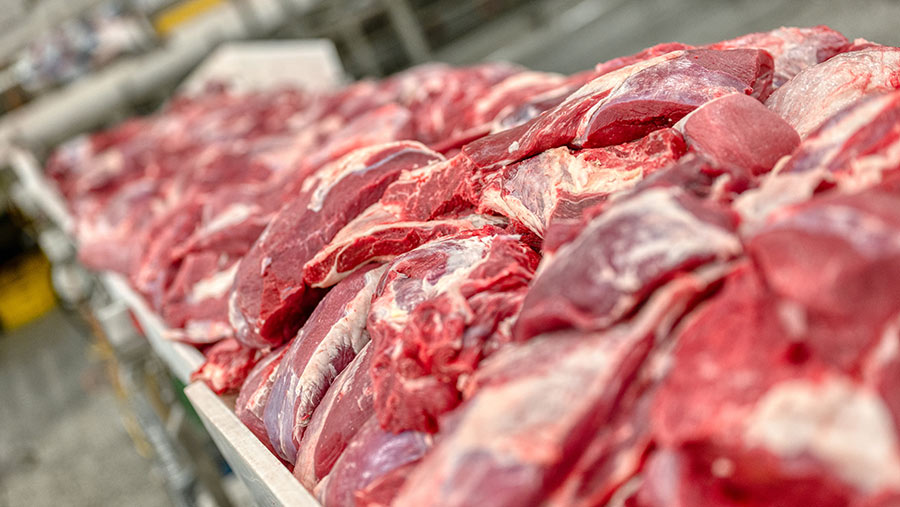Opinion: Red meat industry needs healthy competition
 © Nordroden/Adobe Stock
© Nordroden/Adobe Stock As I sat there, hungover, in the lecture hall, I knew I would never use this drivel. Economics? I hadn’t signed up for this as an ag student. I made my excuses and left.
How wrong I was. Today I find myself thinking about that fundamental component of all good economies, healthy competition, after the Irish meat giant ABP announced it has acquired two meat packing plants from British-owned ScotBeef.
It’s a basic rule of economies, and one that a hungover 20-year-old should have taken more interest in, as it affects all primary producers, not just the red meat sector.
See also: Opinion – TV is the perfect platform for young farmers
In the case of ScotBeef, at least the processing facilities are thankfully staying put in the UK, but the buyout will further concentrate the power of one of the largest processors in a sector that is increasingly seeing the majority of meat being sold by just a handful of companies.
We need processors. Nothing else is going to get meat off the animals’ bones and onto a shop shelf.
But news such as this – coupled with small abattoirs closing at a rate of 10% a year (RIP Black Brow) – is alarming for livestock farmers wanting to see a competitive trade for finished stock.
There will always be middlemen on the journey from farm to fork. But in a country where food inflation is rife, the lack of buying competition leaves the door wide open for corporations to make excessive profits at the expense of farmers.
The beef markets have enjoyed a good trade since mid-2022, but as values start to slip it makes you wonder if this is in part due to the power that these multinational, multibillion-pound companies can wield.
What we cannot allow to happen is a further monopolisation of the sector. Not at a time when, according to AHDB, export markets are reporting the highest levels of trade since records began.
Global meat consumption is rising steadily and we need a seat on this gravy train. Is that a big ask, given the quality, sustainable product we produce?
In the US, we can see the effects of meat monopolisation with accusations of immoral profiteering and corporations being taken to court over price-fixing allegations.
The Biden administration even made breaking up the power of the “Big Four” meat companies one of its top domestic priorities last year.
Despite being a tight-fisted Scotsman and hating to pay commission, I hope that the industry can look more to the live ring to sell fatstock and get the true market value of our product.
Yes, I’ve walked out of a market door feeling gubbed that I didn’t make what I wanted, but at least the transparency of trade was there.
Of course, it can work the other way, and nothing beats seeing buyers jumping to compete with each other at the ringside.
Cups of tea flying, harsh words and irate looks exchanged, with only the auctioneer’s gavel to keep them under control.
In comparison with other parts of Europe, we’re lucky to have such a network of markets throughout the UK.
In the face of corporate consolidation, I feel that they will have an ever more important part to play in the future of securing a fair price for farmers.

